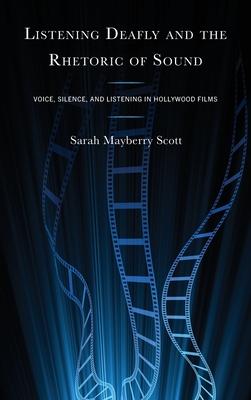In this book, Sarah Mayberry Scott bridges the seemingly insurmountable divide between sound studies and deaf studies by considering the persuasive nature of sound at the intersection of sound, rhetoric, and deafness. Using three contemporary films as critical touchstones, CODA (2021), A Quiet Place (2018), and Sound of Metal (2019), Scott investigates how the history and values of Deaf culture provide opportunities for expanding the concepts of voice, silence, and listening to include a plurality of embodied experiences. Through utilizing an innovative rhetorical approach of listening deafly to sound, the author asserts that it is possible to understand voice without orality, to experience sound without hearing, and to listen in multi-modal ways to show that all bodies are sound bodies. Scholars of deaf studies, sound studies, and rhetoric will find this book of particular interest.
| FindBook |
有 1 項符合
Listening Deafly and the Rhetoric of Sound: Voice, Silence, and Listening in Hollywood Films的圖書 |
 |
Listening Deafly and the Rhetoric of Sound: Voice, Silence, and Listening in Hollywood Films 作者:Mayberry Scott 出版社:Lexington Books 出版日期:2023-10-15 語言:英文 規格:精裝 / 136頁 / 普通級/ 初版 |
| 圖書館借閱 |
| 國家圖書館 | 全國圖書書目資訊網 | 國立公共資訊圖書館 | 電子書服務平台 | MetaCat 跨館整合查詢 |
| 臺北市立圖書館 | 新北市立圖書館 | 基隆市公共圖書館 | 桃園市立圖書館 | 新竹縣公共圖書館 |
| 苗栗縣立圖書館 | 臺中市立圖書館 | 彰化縣公共圖書館 | 南投縣文化局 | 雲林縣公共圖書館 |
| 嘉義縣圖書館 | 臺南市立圖書館 | 高雄市立圖書館 | 屏東縣公共圖書館 | 宜蘭縣公共圖書館 |
| 花蓮縣文化局 | 臺東縣文化處 |
|
|
圖書介紹 - 資料來源:博客來 評分:
圖書名稱:Listening Deafly and the Rhetoric of Sound: Voice, Silence, and Listening in Hollywood Films
|











